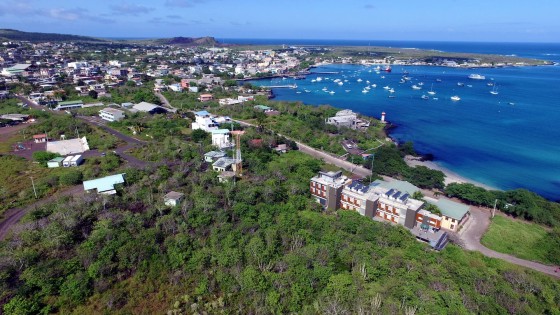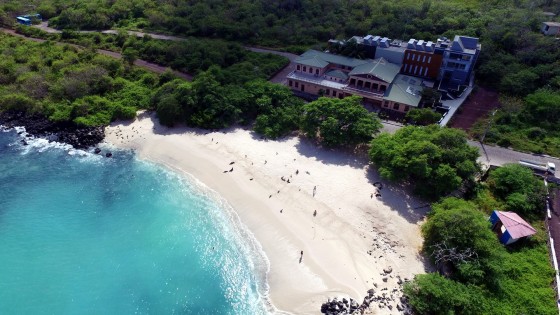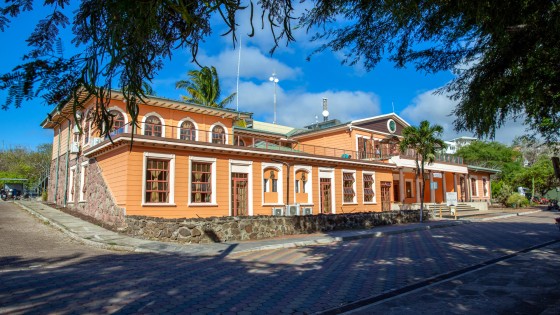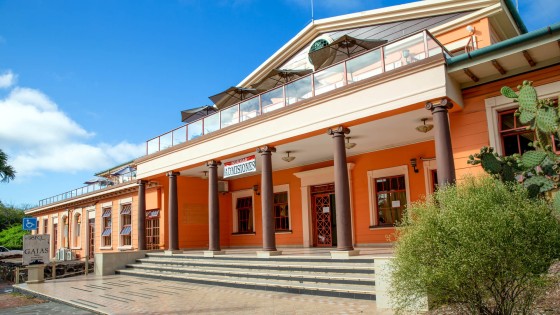Galapagos
The Galapagos Science Center (GSC), is a multidisciplinary research center located on San Cristóbal Island, which has been created thanks to the collaboration between USFQ and the University of North Carolina - Chapel Hill (UNC) for scientific development in the Galapagos Islands.
This research center wants to promote the conservation of the fragile ecosystems of the islands and the development of the populations that inhabit them through scientific and intellectual development. The GSC is conceived as a multidisciplinary space with three fundamental axes: integrated scientific research, education, and community support.
Scientific research is based on the advancement of knowledge in natural and social sciences using Galapagos as a natural laboratory, but always considering human communities as an essential part of Galapagos systems. UNC and USFQ are leaders in the training of undergraduate and graduate students and the GSC will serve to strengthen the education of our students (nationals and foreigners) through a more intense inclusion in research.
Relations with the Galápagos community are very important and the GSC carries out its work in coordination with the Galápagos National Park, the Galápagos Regional Government Council, the Municipality of Puerto Baquerizo Moreno, the Charles Darwin Station and many other local and regional institutions. Likewise, interaction with the Galapagos community is vital, through associations of guides, parents, fishermen, etc. who provide feedback to research and education processes.
Mission
To generate knowledge, educate, and train the community that lives in the Galapagos archipelago, following the philosophy of Liberal Arts, promoting environmental conservation, the sustainability of the islands and the well-being of the local population, offering top quality higher education to generate sustainable and non-extractive economic alternatives.
Vision
To be a model of higher education in Liberal Arts, entrepreneurship, development, and scientific and technological research of the socio-ecological systems of the Galapagos archipelago, recognized for having quality graduates and generating multidisciplinary knowledge with a global projection contributing to the change in the model of economic and social development of the islands.
Admissions
Admissions of Students resident in Galapagos
For students residing in the Galapagos (specifically in San Cristóbal) and intending to obtain an academic degree in one of the undergraduate courses offered by the USFQ Galapagos extension.
Admissions for Internacional Students
For students from across the world that want to be part of study programs offered by USFQ at our Galapagos campus.
Note: USFQ students who do not reside in Galapagos may take classes at the USFQ Galapagos campus by completing the following Registration processes.
History
In 2002, with the full support of the Decentralized Autonomous Government of the San Cristóbal Canton, USFQ inaugurated its extension in the Galapagos (USFQ Galápagos), an international academic institution that develops academic and research, conservation and development programs in the Galapagos Islands. The USFQ Galapagos extension has become the most important center for higher education and research in the entire archipelago. It has also developed relationships and agreements with various universities and with national and foreign organizations, both governmental and non-governmental, that work for the conservation and sustainable development of the Galapagos.
The USFQ extension is located on San Cristóbal Island, in front of Mann Beach. It has five fully-equipped classrooms for 30 students, and an auditorium for 40 people, research laboratories, a computer center with 23 computers, wireless internet, four offices, two administrative offices, one for reception and one for English professors, a library with 2077 volumes with specialized information on the Galapagos that is open to the public, kitchen, cafeteria, community room, and external and internal areas for study and rest.
Global Alliances
University of North Carolina at Chapel Hill (UNC)
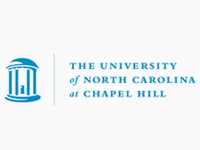
USFQ collaborates with the University of North Carolina - Chapel Hill (UNC) in the development of the Galapagos Science Center, the research center of our Galapagos extension. This multidisciplinary research center was created to promote the conservation and sustainable development of the Galapagos Islands.
Universiti Brunei Darussalam
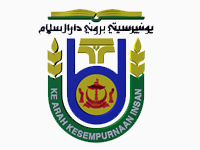
The University of Brunei Darussalam, through the University of North Carolina - Chapel Hill (UNC) has established a cooperation and collaboration agreement with USFQ as well as a working relationship in search of the internationalization of higher education in the fields of research, education and programs of mutual interest.
The Leibniz Center for Tropical Marine Ecology (ZMT) Bremen
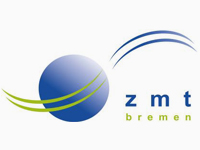
The Leibniz Tropical Marine Ecology Center, through the University of North Carolina - Chapel Hill (UNC) has established an academic link and a cooperation agreement with USFQ, as well as a working relationship in the fields of research, education and programs of mutual interest.
The University of the Sunshine Coast (USC)
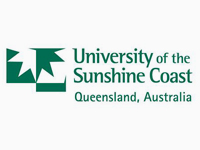
The University of Sunshine Coast, through the University of North Carolina - Chapel Hill (UNC) has established an academic link and a cooperation agreement with USFQ as well as a working relationship in the fields of research, education and programs of mutual interest.
Galapagos National Park Ecuador (PNG)
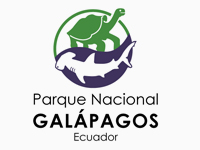
USFQ has a framework agreement for inter-institutional cooperation with the PNG. In this agreement, the institutions agree to promote scientific cooperation for research, education, and training in the fields of scientific research and long-term ecological monitoring programs.
Lines of Investigation
The GSC is a space for intellectual integration, where the natural and social sciences are developed and the interests of the Galápagos community and institutions advance. The GSC strategy is based on three axes of development: (1) scientific research, (2) education, and (3) community support and outreach.
The Research Center of the San Francisco University Galapagos GSC Extension has a strong commitment to the community, which is developed through its community development program. This implies a joint work with local and national governmental and non-governmental institutions. Its main allies are the Galapagos National Park, the Galápagos Government Council, the Municipality of San Cristobal and also collaborates with the ministries of Tourism, the Ecuadorian Institute of Statistics and Censuses, Clirsen, Inocar, etc. Currently, joint projects are being developed and high positive impact products are expected.
In research, the fields to be strengthened initially include:
Study of Human - Environmental Interactions
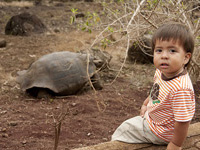
- Human migration and tourism
- Public health and ecology of the disease
- Political ecology and landscape ecology
- Institutions and policies
- Strategies and livelihoods
- Dynamics of land use change and vegetation cover
- Coupled human-natural systems
Marine ecology

- Mapping and modeling of marine ecosystems
- Biodiversity and biogeography
- Communities and endemism
- Habitat dynamics
Mammals and Seabirds
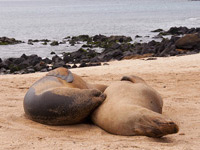
- Population distribution and dynamics
- Migration and environmental change
- Ecology
- Bio-acoustic
Terrestrial Ecology
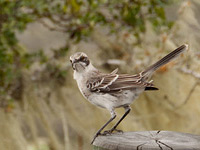
- Succession Studies
- Evolution and adaptive radiation
- Invasive species and eradication
- Habitat stress, recovery and restoration
Microbiology
- Molecular biology
- Animal Virology
- Epidemiology
- Biosecurity
Conservation, Management, and Sustainable Development
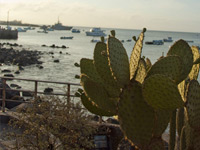
- Invasive flora and fauna and eradication programs
- Vulnerability and ecological and social resilience
- Environmental change and its consequences
- Conservation and economic development
Earth sciences
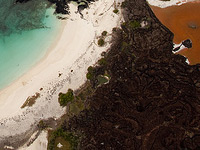
- Marine layer and marine conditions in the Archipelago
- Sediments, volcanism, island formation
- Marine currents, temperature, productivity
- El Niño / La Niña and other environmental changes
- Volcanism
- Natural risks
Projects
- Carlos Valle: Ecology and current situation of the Galapagos seabird community: Study of the spatio - temporal variation of the diet, trophic relationships, distribution and the state of their populations.
- Carlos Valle: Territoriality and sexual dimorphism of the Galapagos lava lizards (Microlophus spp).
- Diego Páez Rosas: Trophic ecology of the pinipeds of the Galapagos Islands: Regional and Temporal Analysis.
- Diego Páez Rosas: A retrospective study of the food ecology of 3 species of pelagic sharks found in the vessel captured in the Galapagos Marine Reserve, through the analysis of stable C and N isotopes.
- Elizabeth Havice, Gabriela Valdivia, Wendy Wolford, and Scott Sellwood: Food production and conservation in the Galapagos Islands.
- Faizah Metali: Influence of exotic plant invasion on soil properties: a comparative study between Brunei Darussalam and the Galapagos Islands (2-year study)
- Jill Stewart: Explorations in Human and Ecosystem Health: Water Quality in the Galapagos Islands
- Joel Fodrie, Daniel Abbey: Assessing the role of mangroves as essential breeding areas for snappers (Lutjanidae) and grunts (Haemulidae) on the islands of Isabela, Santa Cruz and San Cristóbal, Galapagos.
- Judith Denkinger: Demography, life range and habitat use of the green turtle (Chelonia mydas) and the hawksbill turtle (Eretmochelys imbricata) in foraging and resting areas, close to urban sites on San Cristóbal Island
- Judith Denkinger: Morbilivirus prevalence and transmission of canine bacterial and viral pathogens to the sea lion population on San Cristóbal Island.
- Karla Vasco: Blood Chemistry Values of clinically healthy land turtles Chelonoidis chathamensis
- Kim Engie: Adaptation and changes in the livelihood of artisanal fishermen in the Galapagos Marine Reserve, Ecuador
- Lindsey Carr: Variation in the "top-down" and "bottom-up" processes in the Galapagos marine ecosystems.
- María de Lourdes Torres: Preliminary study of the genetic diversity of guava, Psidium guajava, on San Cristóbal Island, Ecuador.
- Marjorie Riofrío: Impact of the predation of the introduced rodents on the Galapagos petrel (Pterodroma phaeopygia) in the nesting colony El Junco, San Cristóbal Island.
- Marjorie Riofrío: Sustainability of management strategies adapted to various states of the eastern ecosystem of the Galapagos Archipelago.
- Paolo Bocci: Invasive Life: The Policy and Practices Towards a Multi-Species Society in the Galapagos.
- Stella de la Torre: Effects of land use on the structure and ecosystem functions of agricultural and urban areas in San Cristóbal, Galapagos.
- Stephen Walsh, Laura Brewington and Carlos Mena: Remote Sensors on the beaches of the Galapagos Islands and Vulnerability Assessments
- Steve Walsh, Carlos Mena, Laura Brewington and Ben Heumann: Mapping and modeling invasive species in the Galapagos Islands.
- Verónica Barragán, Gabriel Trueba, Sofía Barrera: Pilot study to determine if transfer of human bacterial genes occurs to sea lions (Zalophus wollebaeki) from San Cristóbal Island from domestic waters
- Zohrah Sulaiman: Comparison of the genetic structure of some edible fish populations: Pontinus strigatus (warlock), Thunnus albacares (Yellowfin tuna), Acanthocybium solendri (wahoo), Myctoroperca olfax (Cod) and Seriola rivoliana (palometa) between Borneo and the Galapagos Islands.
Infrastructure
The Galapagos Science Center complements the scientific capacity of the Galapagos Islands with 4 laboratories:
- Terrestrial Ecology
- Marine ecology
- Geographic information systems
- Microbiology
Additionally, it has the infrastructure for scientists, students and the general public to carry out research, attend academic events, etc.
- Multipurpose rooms
- Administrative and investigation offices
- Meeting room and conference call
- Terraces
The GSC has a data center with highly specialized and modern computer systems equipment, specially designed for the high requirements of scientists. The system is based on a combination of the following equipment:
- 4 HP Servers ProLiant DL 380 G7: 48GB PC3-10600E (12x4GB) Low Voltage Memory
- 2x500GB SATA 7.2kRPM Disks (RAID-1)
- HP StorageWorks MSA2312i Dual Controller Modular Smart Array
- 12 1TB 3.5” SAS/6 Hard Drives
An important premise in the design and construction of the GSC was to maintain, as far as possible, a minimum environmental impact. For example, the rocky soil was kept intact, avoiding landfills. For this purpose, all buildings are supported on piles raised to at least one meter above the natural level of the terrain. The construction was also based on a metal structure that was carried out under rigorous parameters that reduced contamination in the area. This structure was built on the mainland, transported, and assembled on site. Manufacturing on the mainland minimizes polluting waste on the Island, the system of joining the metal structure with bolts is less polluting in the short term for two aspects: noise and avoided waste. Being previously galvanized and avoiding welds, the structure requires very little or zero maintenance, which allows avoiding the use of resins that are extremely toxic. On the other hand, it is planned, in the short term, to install solar panels and a system for recycling wastewater.
UNC RESEARCHERS
Larry Band (Geography)
Director Institute for the Environment
Email: lband@email.unc.edu
Margaret E. Bentley (Nutrition)
Associate Dean, Department of Global Health, Associate Director for the Institute of Global Health and Infectious Diseases
Email: pbentley@unc.edu
Philip R. Berke (Urban and Regional Planning)
Deputy Director Institute for the Environment
Email: pberke@email.unc.edu
Gary L. Bowen (Social Work)
Social Work Professor
Email: glbowen@email.unc.edu
John F. Bruno (Marine Sciences)
Professor of Marine Sciences
Email: john_bruno@unc.edu
Michael Emch (Geography)
Professor of Geography
Email: emch@email.unc.edu
Jonathan M. Lees (Geology)
Professor of Geological Sciences
Email: jonathan.lees@unc.edu
Kenneth J. Lohmann (Biology)
Professor of Biology
Email: klohmann@email.unc.edu
Ronald R. Rindfuss (Sociology)
Professor of Sociology
Email: ron_rindfuss@unc.edu
Conghe Song (Geography)
Professor of Geography
Email: csong@email.unc.edu
Stephen J. Walsh (Geography)
Director of the Galapagos Studies Center, Co-Director of the Galapagos Sciences Center
Email: swalsh@email.unc.edu
Undergraduate Programs (Majors)
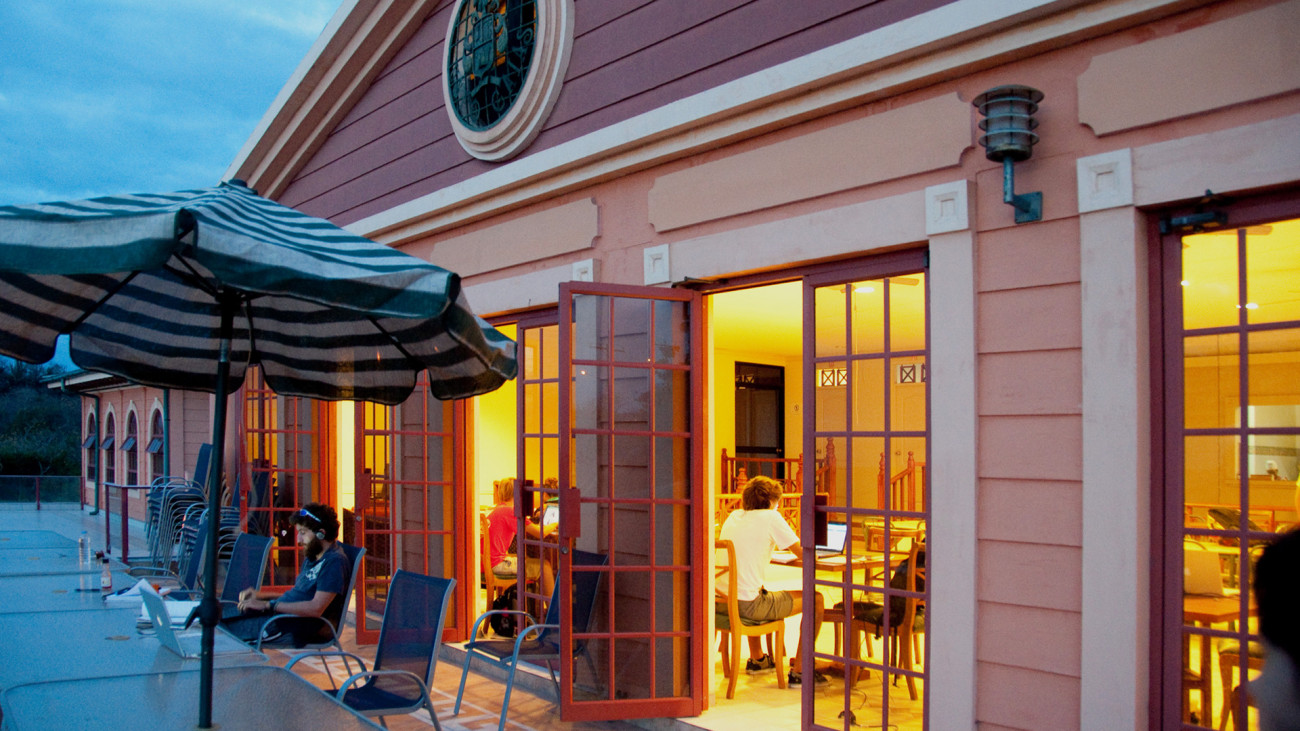
Business Administration (Galapagos)
The Business Administration career studies contemporary administrative theories complemented with important tools from other disciplines such as Marketing, Accounting, Finance and Economics, strengthening the creation of comprehensive strategies that promote the growth and prosperity of public and private organizations in the country and the world.
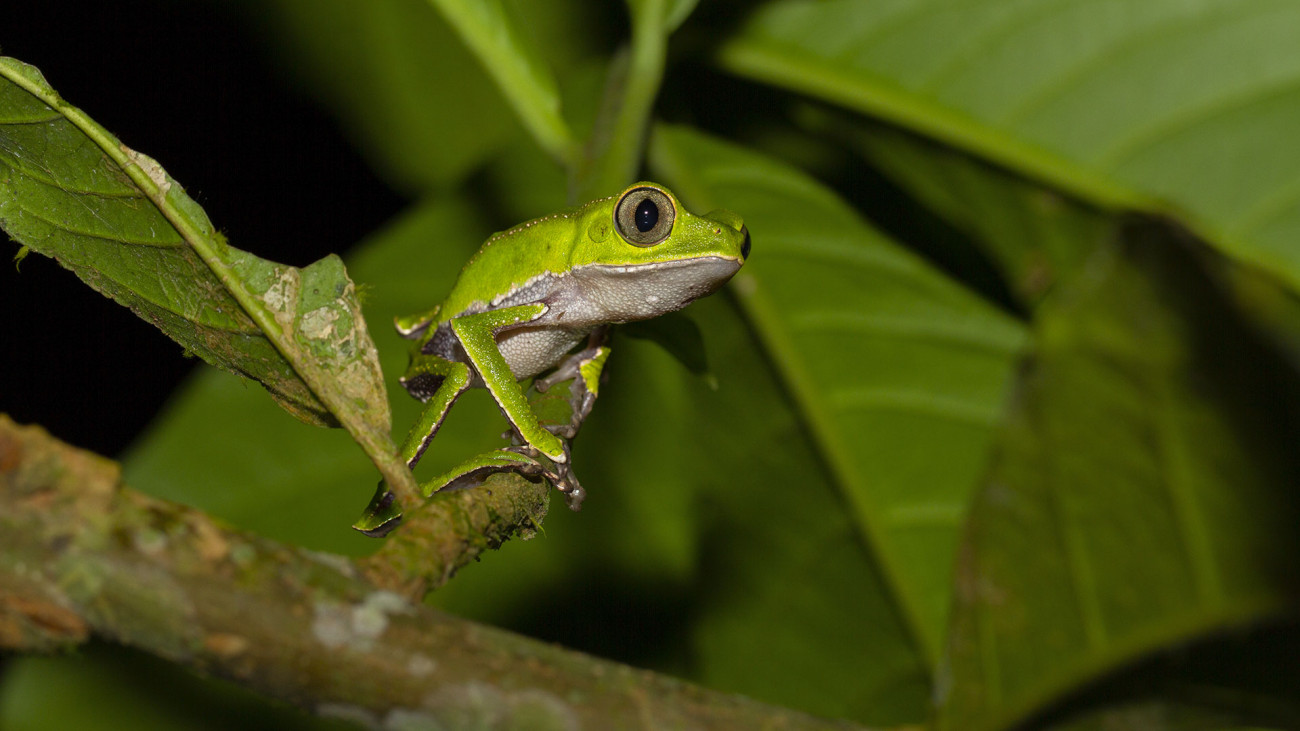
Environmental Management
The main areas of administration and environmental science are studied in the blended Environmental Management program, as well as the management of companies, projects, processes, and organizations related to the management and conservation of natural resources and ecotourism activities.
Graduate Degrees
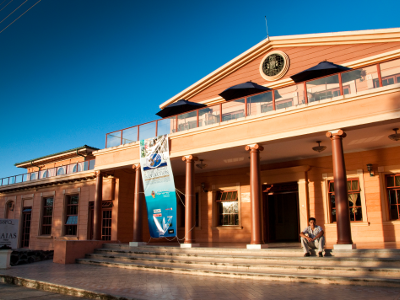
Master's in Environmental Management
This professional master's degree is born from a comprehensive approach to Environmental Management, based on four axes: Biophysical Environment, Human Environment, Environmental Management, and Institutional Environment.

